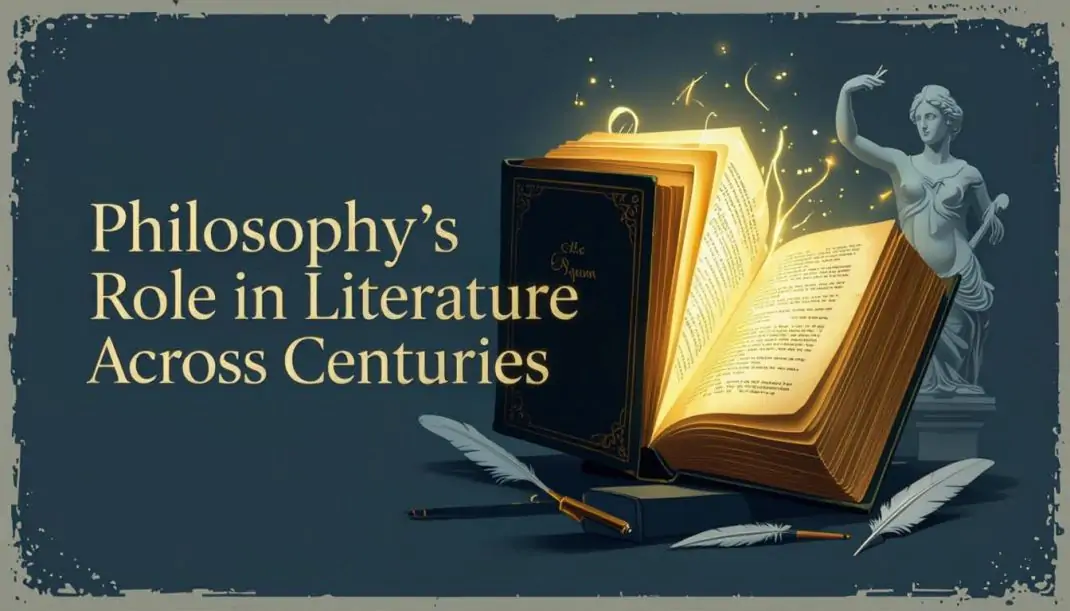Roots of Thought in Ancient Writing
From the earliest myths to the dialogues of ancient Greece writers turned to philosophy to frame questions about life death and meaning. The plays of Sophocles asked whether fate ruled human choices while Plato’s works tested ideas of justice and truth. Literature was never just about telling a story but also about showing how people wrestled with ideas larger than themselves. That bond gave written works a depth that carried them across centuries.
Even today ancient texts still pulse with energy because they mix poetry with inquiry. A line in Homer about gods meddling in human lives speaks to destiny while a Socratic dialogue invites readers to think rather than accept. This weaving of story and reflection made literature a mirror of human struggle and a tool for education. It explains why Z library stays popular among readers worldwide since access to texts with both drama and thought gives people a bridge to old wisdom that still feels urgent.
Shaping Voices in the Middle Ages and Renaissance
Medieval writers worked under the strong hand of theology. Philosophical themes appeared in stories of faith and morality where the soul’s path mattered more than earthly victories. Dante’s "Divine Comedy" used allegory to ask about sin and redemption. At the same time the rebirth of learning in the Renaissance revived Greek and Roman voices. Writers like Montaigne fused personal reflection with sharp questions that sound modern even now.
The link between philosophy and literature during this time was not only about belief. It was also about discovering the self. Shakespeare’s characters in plays like "Hamlet" or "King Lear" argue with themselves in ways that echo philosophers struggling with identity and choice. Readers sensed that literature had moved from collective myths to personal battles and that shift gave drama and essays their lasting power.
To see how this exchange between story and thought takes form consider these examples:
-
Allegory as Inquiry
Writers used allegory to embody ideas in human or symbolic figures. A knight on a journey was never just a traveler but a seeker of truth. In "The Faerie Queene" every character reflects an argument about virtue and vice. Allegory let readers hold a mirror to their own lives while still enjoying the surface tale.
-
Dialogue as Drama
Philosophical dialogue gave structure to plays and essays. Instead of a sermon it allowed tension between voices. Montaigne’s essays wander in tone but each page opens a dialogue with thinkers of the past. Drama too found life in these conversations where opposing ideas clashed on stage.
-
Humanism as Compass
Humanism placed human experience at the center of art and thought. Renaissance literature thrived on the idea that reason could guide action. Works explored politics love and knowledge through this compass. They reminded readers that wisdom was not locked in distant heavens but found in daily struggles.
The persistence of these forms shows why literature remains a meeting ground between reflection and narrative. Writers used philosophy not to replace story but to give it a second layer that lingers after the last page.
Modern Movements and Shifting Ideas
As the centuries turned literature did not let go of its philosophical backbone. The Enlightenment lit the stage with rationalism. Writers argued for reason science and liberty while shaping characters that embodied those ideals. Later Romantic poets rebelled with emotion and imagination showing that philosophy could ask about feeling as much as logic. The result was a fertile mix of ideas that shaped novels poetry and essays across Europe and beyond.
By the nineteenth century existential doubts rose to the surface. Dostoevsky asked what freedom meant when burdened by guilt. Nietzsche’s shadow hovered over novels that tested morality and choice. This period showed how deeply philosophy could influence not only the style but also the themes of literature. In the twentieth century voices like Sartre and Camus turned existentialism into living characters. Their novels asked questions without promising answers. Z-lib often becomes a reference point for students exploring these works because it gathers texts that would otherwise be scattered across libraries and editions.
Lasting Echoes of Philosophical Literature
Philosophy keeps returning in stories because it speaks to timeless human concerns. Science fiction novels ask if machines can think or if time has meaning. Poets question beauty truth and mortality. Even contemporary essays circle back to the same core riddles that Plato raised. This continuity explains why reading across centuries feels like entering an ongoing conversation where each voice adds new layers.
The role of philosophy in literature is not about handing down doctrine. It is about creating space where questions remain alive. A book does not need to solve the problem of existence to matter. It needs to invite thought and keep the mind restless. That restlessness is what links Homer to Toni Morrison and Sophocles to Margaret Atwood. It is also what ensures that as long as people read they will keep finding philosophy hidden between the lines of literature.








